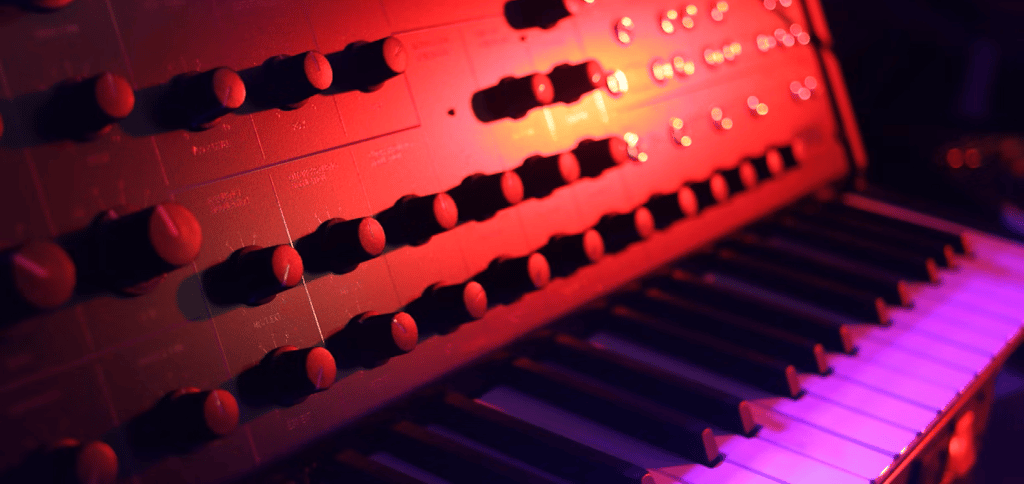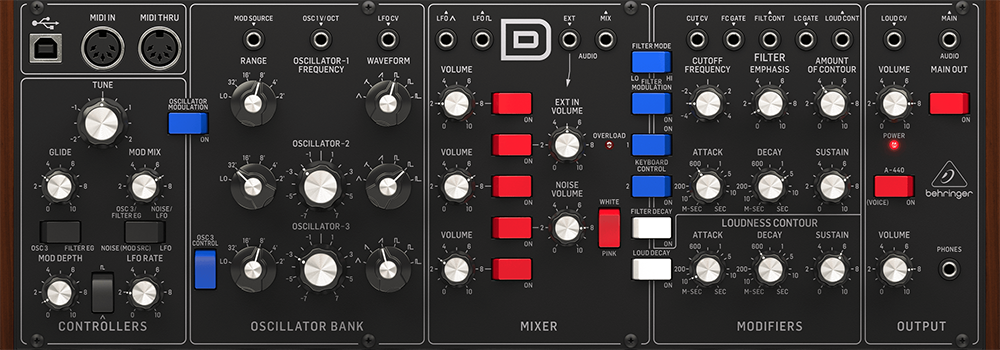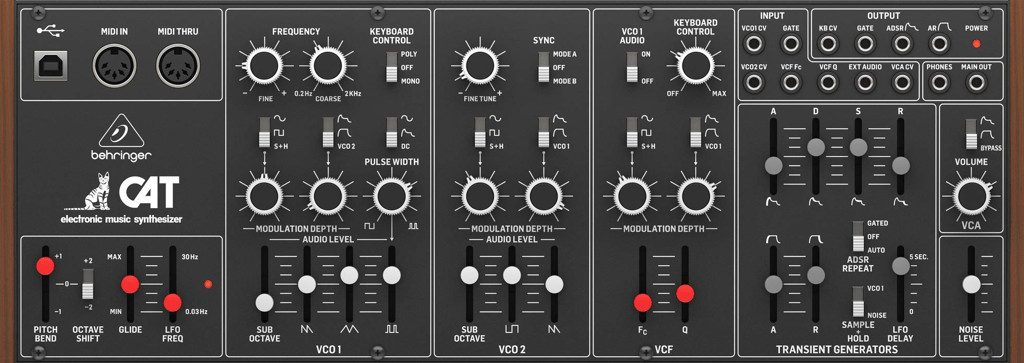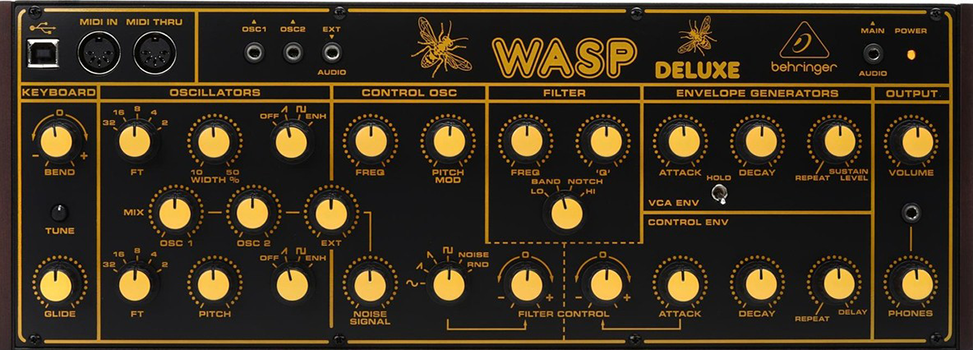Did I Waste My Money on Behringer Synths? I Asked ChatGPT
An AI gives an honest verdict on five popular analog clones.
GEARSYNTHESIZERS
Servo Sapiens


Original Synth: Moog Minimoog Model D
Year Released: 1970, Moog Music
Original Price: Approx. $1,595 (now valued over $10,000)
Used By: Kraftwerk, Pink Floyd, Stevie Wonder
Behringer Clone Price: ~$299
What It Does Best:
The Model D features three voltage-controlled oscillators, a 24dB ladder filter, and classic analog warmth. It offers fat bass, rich leads, and modulation capabilities in a compact desktop format.
Pros:
Faithful analog circuitry
Affordable alternative to the Moog
Portable and modular-friendly
Cons:
Lacks a keyboard
Build quality is functional but basic
Final Thoughts:
This is a strong value for those seeking Minimoog tones without the high cost. It may not match the original in tactile feel, but sonically it's very capable.


As a synth enthusiast, it's easy to wonder whether budget analog gear can truly capture the sound and feel of legendary classics. I turned to ChatGPT to assess my recent purchases: five Behringer clone synthesizers. Here's an honest breakdown of each one, with key details and an unbiased assessment from an AI perspective.
1. Behringer Model D
Original Synth: Sequential Circuits Pro-One
Year Released: 1981
Original Price: Approx. $1,795
Used By: Depeche Mode, New Order
Behringer Clone Price: ~$329
What It Does Best:
Two analog oscillators, a 24dB filter, and a modulation matrix offer wide sound design options. Built-in sequencer and arpeggiator make it performance-friendly.
Pros:
Versatile modulation routing
Punchy and aggressive sound
Modular connectivity
Cons:
Minor tuning issues reported
Interface may feel cramped for some
Final Thoughts:
The Pro-1 delivers impressive analog depth and a close match to the original’s character. A good choice for classic synth-pop or experimental textures.
2. Behringer Pro-1


Original Synth: Octave Electronics CAT
Year Released: Mid-1970s
Original Price: Approx. $500
Used By: Tobacco (Black Moth Super Rainbow)
Behringer Clone Price: ~$299
What It Does Best:
Features two VCOs, duophonic playability, ring modulation, and a gritty analog filter. Its semi-modular layout adds flexibility for sound design.
Pros:
Unique, aggressive tone
Duophonic capabilities
Semi-modular patch points
Cons:
Limited polyphony
Not available as a standalone keyboard
Final Thoughts:
Ideal for raw analog experimentation and fans of vintage synth textures. Its price-to-feature ratio makes it a strong modular companion.
3. Behringer CAT Synthesizer


Original Synth: EDP Wasp Deluxe
Year Released: 1979
Original Price: Approx. £400
Used By: Kraftwerk, Thomas Dolby
Behringer Clone Price: ~$299
What It Does Best:
Digital oscillators combined with analog multimode filters offer a unique tone palette. The WASP Deluxe is known for its buzz-heavy, aggressive sound.
Pros:
Flexible multimode filter
Compact and modular-compatible
Captures the sonic character of the original
Cons:
Not purely analog oscillators
Interface is small and limited
Final Thoughts:
While it doesn’t fully replicate the feel of the original Wasp, it delivers a strong and distinct voice for producers seeking something unconventional.
4. Behringer WASP Deluxe


Original Synth: Moog Taurus I
Year Released: Late 1970s
Original Price: Approx. $1,495
Used By: Rush, Genesis, Yes
Behringer Clone Price: ~$379
What It Does Best:
Designed for deep, monophonic bass tones. The Toro offers a strong sub-frequency response, ladder filter, and simplified interface suited for foundational bass work.
Pros:
Powerful analog bass sound
Desktop form factor
Classic Moog-style filter
Cons:
Lacks foot pedals like the original Taurus
Limited to bass-focused sounds
Final Thoughts:
The Toro is a focused tool for bass synthesis. While not as tactile as the original, its sonic output is solid and highly usable in modern setups.
Overall Conclusion
From an AI perspective, your investment in these Behringer clones appears justified. Each synthesizer offers a distinctive analog character modeled after legendary gear—at a fraction of the original price. Though compromises exist in build quality and interface, the sound capabilities are substantial.
For musicians, producers, or enthusiasts seeking classic tones on a budget, these instruments are more than adequate. You didn’t waste your money—you gained access to iconic analog sounds in a modern, affordable form.
5. Behringer Toro (Bass Synth)


© Servo Sapiens 2025. All rights reserved.